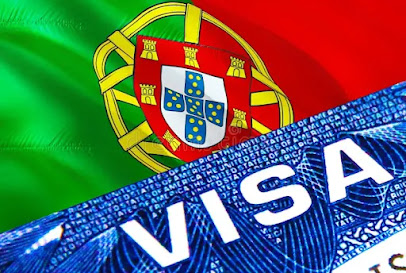Are you considering relocating to Portugal? This beautiful country, nestled on the southwestern coast of Europe, has been attracting a growing number of expatriates seeking a high quality of life, picturesque landscapes, and a vibrant culture. However, before embarking on this exciting journey, it's essential to understand the immigration requirements and application process. In this comprehensive guide, we'll walk you through the necessary steps to make your move to Portugal a smooth and successful one.
1. Understanding the Visa Types
Portugal offers various visa options depending on the purpose of your stay. Some of the most common visa types are:
a. Schengen Visa (Short-Term Stay)
Ideal for tourists and individuals planning to stay in Portugal for up to 90 days within a six-month period. This visa is suitable for those who wish to explore the country's wonders, visit family and friends, or attend business meetings.
b. Residence Visa (Long-Term Stay)
If you intend to stay in Portugal for an extended period, you'll need a residence visa. This visa is suitable for employees, students, freelancers, and individuals planning to reunite with family already residing in Portugal.
c. Golden Visa
The Golden Visa program is designed for non-EU citizens who wish to make a significant investment in Portugal. By investing in real estate, creating jobs, or supporting scientific research, individuals can obtain residency and, eventually, Portuguese citizenship.
2. Meeting the General Requirements
Each visa type has specific criteria that applicants must meet. Generally, you'll need to provide the following:
- A valid passport with a minimum of six months validity.
- Proof of sufficient financial means to support yourself during your stay.
- Health insurance coverage for the duration of your stay.
- A clean criminal record certificate from your home country.
- Necessary documentation related to the purpose of your visit (e.g., job offer letter, university acceptance letter).
3. The Application Process
Applying for a visa to Portugal involves several steps:
a. Gather Required Documents
Begin by collecting all necessary documents as per the visa type you are applying for. Ensure that your documents are valid, up-to-date, and have been officially translated into Portuguese if required.
b. Submitting Your Application
You can apply for a Portuguese visa at your nearest Portuguese embassy or consulate. Submit your application along with the required documents and pay the processing fee. The waiting time for visa processing may vary, so it's advisable to apply well in advance.
c. Attend an Interview (If Required)
Some visa types may require applicants to attend an interview at the embassy or consulate. This step is to verify the authenticity of the information provided in your application.
d. Await the Decision
After submitting your application and attending the interview (if applicable), patiently await the visa decision. Once approved, you will receive a visa sticker affixed to your passport.
4. Transitioning to Residency and Citizenship
If you plan to stay in Portugal long-term, you may want to transition from a residence visa to becoming a Portuguese citizen. This process involves:
a. Obtaining a Residence Permit
Once you arrive in Portugal, you'll need to apply for a residence permit within 90 days. This permit is typically granted for one year and can be renewed.
b. Residency Renewal
After holding a residence permit for five consecutive years, you may apply for a permanent residency permit, granting you the right to live and work in Portugal indefinitely.
c. Portuguese Citizenship
After six years of legal residency in Portugal (or five years for those married to a Portuguese citizen), you may apply for Portuguese citizenship. This process allows you to become a full-fledged citizen of Portugal and enjoy all the rights and privileges that come with it.
Next Article






Comments
Post a Comment